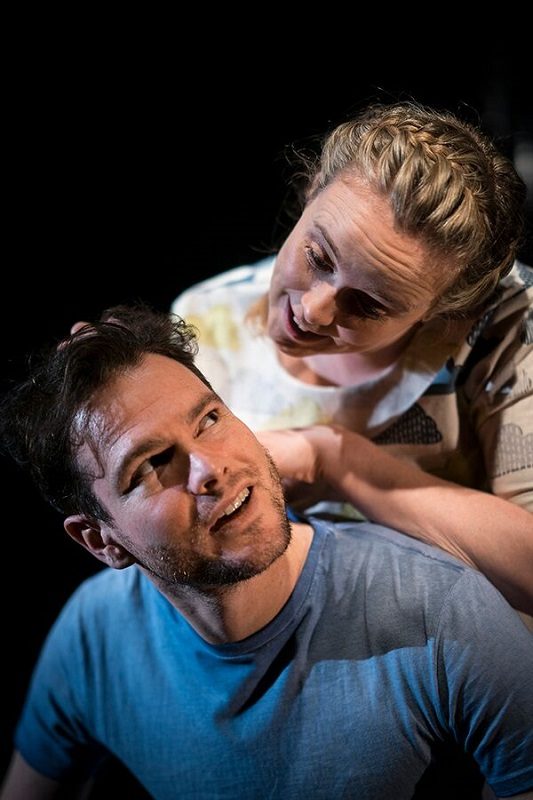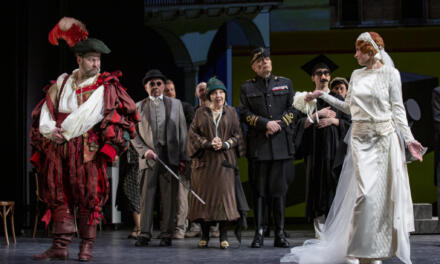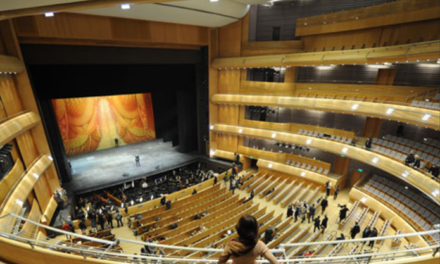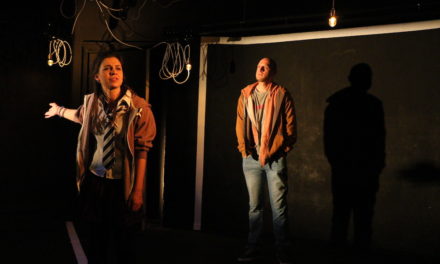POTENTLY RELEVANT
Warning: I’m about to give the (well-known) ending away because the play can’t be discussed adequately without doing so.
It was 138 years ago that Henrik Ibsen upset the patriarchal status quo with A Doll’s House, so named because Nora Helmer realizes she is being treated like a doll by her husband, Torvald, and she’s treating her children, Bobby and Emmy, likewise. So she leaves them.
When his German agent insisted theatergoers in his fatherland would find the ending unacceptable, Ibsen wrote an alternative ending for the German premiere where the sight of her children collapsed Nora’s resolve to liberate herself, and them, from the ignominy of being treated as less than human. The playwright later described that ending as a disgrace, a “barbaric outrage.” The original was restored and Nora’s slammed door reverberated around the world.
I vividly recall the excitement I shared with my peers when Christopher Hampton’s “new version” of Ibsen’s A Doll’s House (using the translation of Helene Gregoire) hit the big screen in 1973, with Claire Bloom and Anthony Hopkins as Nora and Torvald. Gone was the stuffy language of over-literal translations. Although it remained true to its time and place, it spoke loud and clear to our socio-sexual revolutionary zeal while reminding us we were not the first generation to raise awareness of patriarchal oppression and campaign for equal rights.
Has Wellington really only seen one professional production of this classic? Working with Norwegian translator Halldis Hoaas, Colin McColl directed A Doll’s House for Circa in 1993 with Miranda Harcourt and Peter Hambleton in the leads. Not for him the “gloom, gloom I sit in my room” stagings of Ibsen he recalled from his youth. Laurie Atkinson (the Evening Post critic) described it as “absorbing and sometimes thrilling … With some judicious pruning, some directorial touches of genius, and outstanding performances from his actors, he has made this 114-year-old play as fresh as if it were written yesterday.”
In Emily Perkins’ radically revised and updated version, commissioned and directed by Colin McColl for his Auckland Theatre Company in 2015, the conservative propriety of a late 19th-century Norwegian town is replaced with the idealistic imperatives of an alternative “off the grid” lifestyle: an ingenious inversion. Living in mortal fear of a lost reputation is replaced with a mortal fear that human life will not survive what we’ve done to our planet: an ingenious escalation.
In both cases, Nora’s focus is on supporting her husband and therefore the wellbeing of her family (a timeless status). To this end, she has secretly borrowed from a friend the wherewithal to keep them solvent until he can get further up the proverbial ladder then, when the friend turns foe, forged her husband’s signature in order to raise a bank loan against their house and property.
The morally righteous Torvald, about-to-be-promoted to bank manager, has been replaced with the morally righteous builder, Theo, about to score a lucrative contract to build an eco-village. While Torvald’s patronizing gentleness and mindless misogyny was suffocating Ibsen’s Nora, Perkins’ Nora, still stuck in a “supporter of the master role,” feels even more disempowered by the predicted end of civilization as we know it – brought about, she ventures tentatively, by “late capitalism…vulture capitalism…Oh don’t mind me, I don’t know what I’m talking about.”*
In this new Circa Theatre production, dynamically directed by Katherine McRae, a subterranean boom (sound design by Pete Edge) ensures we know something unknown with inevitably rise to the surface. Ian Harman’s ramshackle set of wooden ladders, saw-horses, and planks, lit by Marcus McShane, evokes eco-living in and around a work-in-progress converted barn. This is light-years from the middle-class comforts of the original.
Sophie Hambleton’s roller-coasting Nora keeps rescuing herself from panic attacks by resorting to her repertoire of conditioned feminine behaviors, punctuated with powerful moments of clarity. Her fallibility and vulnerability cannot help but engage our empathy, including with the seething subliminal rage, undefined and untapped for most of the play, that erupts in a stunningly powerful ending.
The complexity of Hambleton’s performance and the fact that the ending heralds the beginning of Nora’s quest for her true self means it takes a while to digest and appreciate the brilliance of her work in honouring the playwright’s honest appraisal of the pressures on young couples trying to surf the swells, swirls, and dumpers of uncertainty.
Likewise, Arthur Meek’s Theo is forever seeking a surer footing in this insecure landscape. He is understandably focused on the need to live within their means until the new contract – acquired in the first few moments of the play–becomes an income-earning reality. And he too has made a moral misstep in the past which comes back to bite him.
Meanwhile, their love for each other is delightfully manifest, as are Nora’s powerful maternal instincts. Indeed the only difficulty is in crediting her ambivalence towards the six-year-old twins. While the text accurately acknowledges the very real frustrations of parenting constantly questing and questioning young children, the Bee and Billy we see on stage–played this opening night by Jessica Southey and Levi Alexander–are charmingly accomplishing all they’ve been asked to do.
As the action plays out in an unbroken flow over (the program informs us) three days, from Christmas Eve until Boxing Day, the interplays between Nora, Theo and their various visitors–two old school friends and a neighbor–are increasingly riveting. The more we get to know about their backstories and intuitively tune into the subtext, the more we are compelled to question, assess and judge everyone’s motives and behavior. The complexity is dramatically enriching.
Francis Biggs brings a lost and anxious quality, overlaid with attempts to be tough, to Aidan, an out-of-work construction worker who has a hold over Nora and a past with Theo that renders him morally corrupt in Theo’s book.
By contrast, the divorced and out-of-work project manager, Christine, maintains her dress-for-success image despite having lost her home to a business deal gone bad. With astute wit and wry humor, Kali Kopae epitomises the type who survives–and probably votes for–the neo-liberal agenda.
Nora and Theo’s neighbor, Gerry – enigmatically played by Peter McCauley–is a globe-trotting, wilderness-loving hunter. He seems like independence personified until his vulnerabilities, and animalistic instinct for dealing with them, are revealed. The fact that he’s rich just sits there, amid everyone else’s straitened circumstances, requiring us to consider how they, or we, might go about asking for help and with what contractual understanding.
There are times when the technical demands of this production’s inexorable forward velocity deny us the chance to dwell on important moments, jolting us instead into an objective awareness of the staging without making a virtue of the metatheatrics. It turns out that the longed-for calm is the proverbial one before the storm.
The final reckoning between Nora and Theo, and Nora and herself is a dramatic maelstrom where we share their struggle to get a grip on the rights and wrongs of what has been revealed; on who has the right to do what and what the implications are right now and into the future. I’ll say no more–except that it involves another ingenious inversion, this time of the “slammed door” motif.
I could also comment on how serendipitously the political headline issues of last week resonate within this play (bending the financial rules to ensure the wellbeing of others; questioning a woman’s right to power against her perceived responsibilities as a mother) but there will doubtless be more as the season progresses alongside the election campaign.
As a classic riddled with universal and timeless moral dilemmas, this A Doll’s House is potently relevant. Not to be missed.
– – – – – – – – – – – – – – –
*Nora is right, of course, about how “vulture capitalism” has threatened our very survival – and in a post-show speech, primary sponsor Chapman Tripp’s special guest, the prime minister, Rt Hon Bill English, admitted some discomfort in watching the play, He would rather have seen it, he quipped, “in its original Danish [sic] setting” so it would feel remote rather than immediate (missing the point that climate change and global economic crises are, well, global and no-one is remote from them).
This post was written by the author in their personal capacity.The opinions expressed in this article are the author’s own and do not reflect the view of The Theatre Times, their staff or collaborators.
This post was written by John Smythe.
The views expressed here belong to the author and do not necessarily reflect our views and opinions.



















